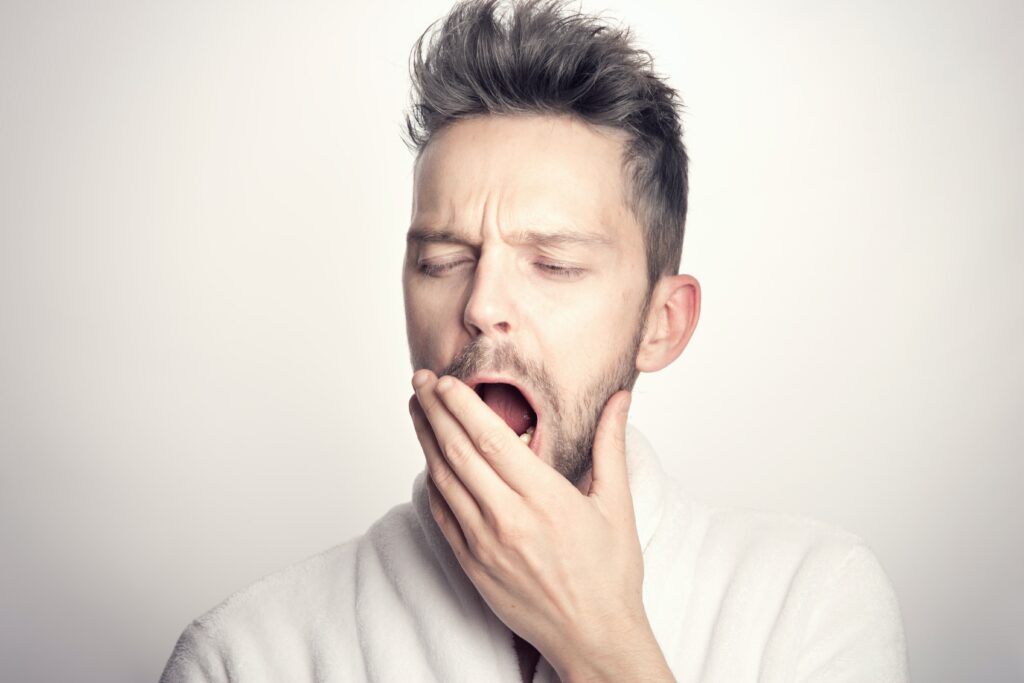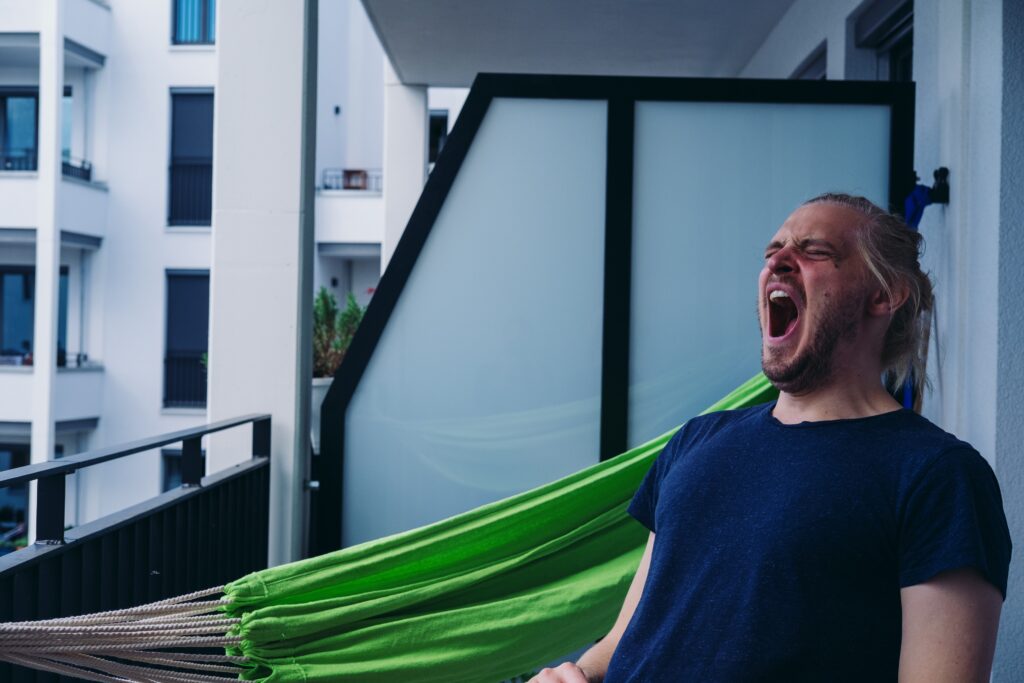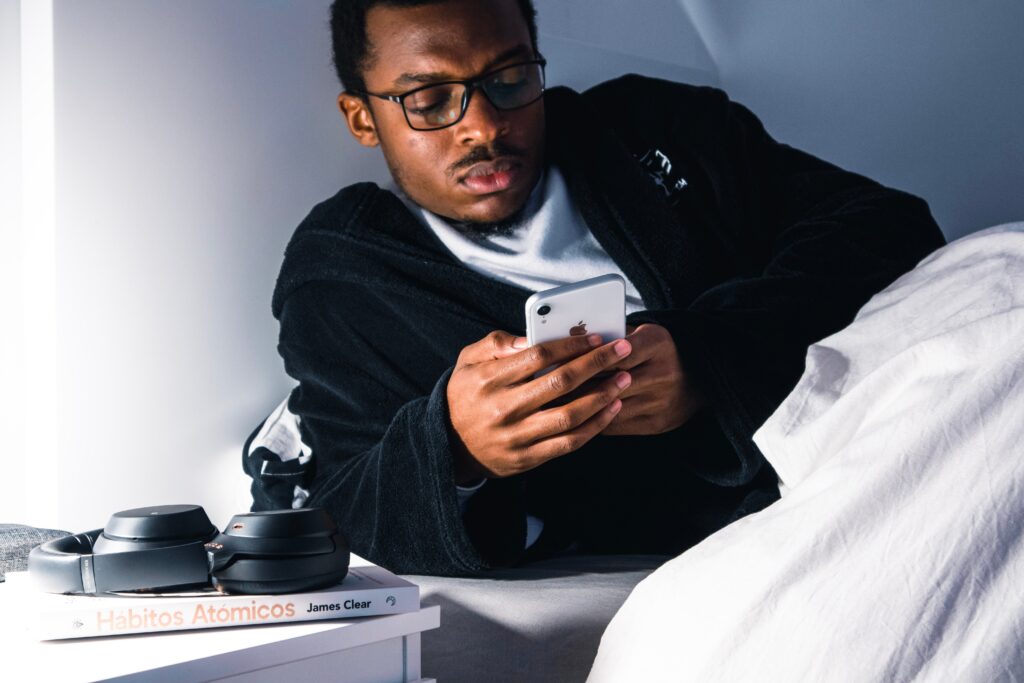
Get more healthy Bear sleep with these tips
Everyone knows Bears sleep a lot. Hibernation is definitely a thing, but not when Pride season is now. And after over two years of staying home, Bears are finally getting back out into the wild. Not getting enough shut eye this Pride season can have health consequences, according to Genuine Health. But here are some helpful pointers.
When we sleep there are many incredible healing processes that take place, which is why restorative sleep is one of the most important pillars of joyous health. We’re sure it’s no surprise to you that sleep issues like insomnia are on the rise. In fact, current research suggests that we’re actually sleeping 2 fewer hours per night than we were 50 years ago. That’s definitely not a trend we want to continue!
Consistently missing out on deep sleep causes an inevitable decline in our overall health. In fact, even one night of poor sleep can impact our hormone balance, appetite regulation, mood, focus, metabolism, and immune function. To get a deeper understanding of what happens in the body when we’re not sleeping deeply, let’s look at some of the health consequences that can occur.

A lack of sleep:
INCREASES YOUR APPETITE & DECREASES METABOLIC FUNCTION
Lack of sleep can cause an increase in appetite, especially for sugars and carbs since our body knows these are quick sources of energy that can help us get through the day. Sleep deprivation increases a hormone called ghrelin, which is what tells your body “I’m hungry.” Unfortunately it also decreases a hormone called leptin that sends the signal “I’m full.” Research has found that those who sleep fewer than 8 hours per night have an increased BMI proportional to a decrease in sleep.
This hormonal pattern of increased ghrelin and decreased leptin, is consistent with decreased energy expenditure i.e. it slows down your metabolism. It’s also associated with increased appetite and the development of obesity. Yes, we Bears love a bit of weight, but some of us also like to watch our weight just so it doesn’t get too out of hand.
DECREASES YOUR IMMUNE FUNCTION
When you sleep, your body is producing immune cells called cytokines that help the body fight off viruses and infections. If you’re not getting enough deep rest, you may not produce enough of these cytokines, which can increase the likelihood of getting sick when you’re exposed to a virus and can impact how long it takes you to recover.
BOOSTS INFLAMMATORY CHEMICALS, WHICH CAN SHORTEN YOUR LIFESPAN!
When you sleep fewer than 8 hours a night, research shows that inflammatory chemicals are elevated! Inflammation is detrimental to health and has been found to shorten one’s lifespan. This impact on inflammatory levels is why it’s so important to get a good night’s rest to prevent illness down the line.
INCREASES YOUR RISK OF HIGH BLOOD PRESSURE & HEART DISEASE
When we’re sleeping our blood pressure naturally drops and takes pressure off of our heart and blood vessels. Chronically elevated blood pressure is associated with increased risk of heart attack and stroke, so it’s important to get your Zs every night! People who habitually sleep under 7 hours are also more likely to experience heart attacks and other cardiovascular events.
DECREASES YOUR ABILITY TO FOCUS
Have you ever felt that “drunk” feeling when you wake up after a poor night’s sleep, yet you haven’t had a drop of alcohol? Well, that’s because lack of sleep impairs simple functions such as attention, learning, and a range of cognitive functions. That means even one night of poor sleep can wreak havoc on your focus and attention!
When you’re sleeping, your body also activates something called the “glymphatic system.” This system helps clear toxins from the brain and shuttles around important compounds like sugars, proteins, fats, and neurotransmitters to help your brain function optimally. If you don’t get enough sleep, this glymph system can’t turn on to protect your brain for a focused and joyous life.
CAUSES A LOSS OF PRODUCTIVITY
A Harvard study found that people with insomnia lost an estimated 11 days of productivity per year. When you’re struggling to get the daily basics done, it’s doubtful that you’ll have the energy to care for your physical, mental, and emotional health. When you’re tired and just barely keeping your head above water, it’s no surprise that self-care falls down your list of priorities, which can cause negative health consequences over time.
WHY AREN’T YOU SLEEPING AND WHAT CAN YOU DO ABOUT IT?
Now that you understand what can happen to your body if you don’t consistently get healing rest, let’s take a look at some of the environmental and lifestyle factors that can impact your ability to fall and stay asleep. Disruption to your sleep cycle is caused by shifts in your natural circadian rhythm. This hormonal rhythm regulates your sleep and wake cycle so that you fall asleep when you’re tired and naturally wake feeling rested and ready for your day ahead.
If you’re struggling to fall asleep there are a few areas of your life to check in with.
Blue light emitted from cell phones, tablets, computers, laptops, and TVs after dark. The blue light interferes with the signaling of the pineal gland that regulates our melatonin production- which we need to fall asleep!

Lack of time spent outdoors. One of my foundations of a joyous life is getting out in nature for at least 20-30 minutes a day. That’s because the sunlight helps modulate our natural circadian rhythm.
Not getting enough natural daylight in your day. A great way to help regulate your circadian rhythm is by getting outside first thing in the morning for a couple of minutes to expose yourself to daylight! The key is to actually get outside and get daylight exposure as it’s not the same behind a window, unfortunately.
Stress. We are more stressed than ever, which can throw our cortisol and melatonin levels out of balance and leave us feeling tired, but wired! Try incorporating moments of mindfulness into your day to manage stress.
If you’re looking for acute support to help you sleep, we don’t recommend reaching for sleep medications since about 80% of people who take them report residual side effects like oversleeping, feeling groggy, and having a hard time focusing the next day. That is the opposite of joyous!
When you’re having trouble turning off your mind and getting into rest mode, try Genuine Health’s Deep Sleep supplement. It has therapeutic levels of melatonin (your sleep hormone!), GABA, L-theanine, magnesium bisglycinate, and reishi mushroom to help you fall asleep, stay asleep, and wake up rested and ready for your joyous day ahead!
About Genuine Health
Genuine Health makes all-natural, science-based supplements that give your body the nourishment it needs for improved energy, nutrition, mood, cognition, movement, skin and gut health.













